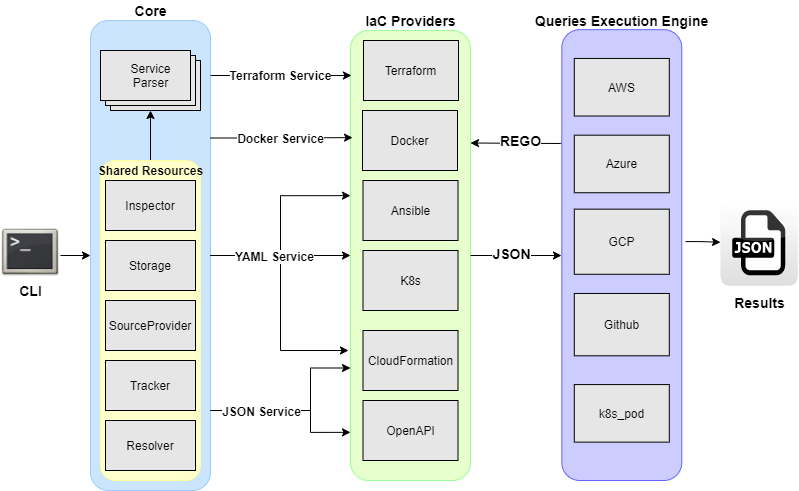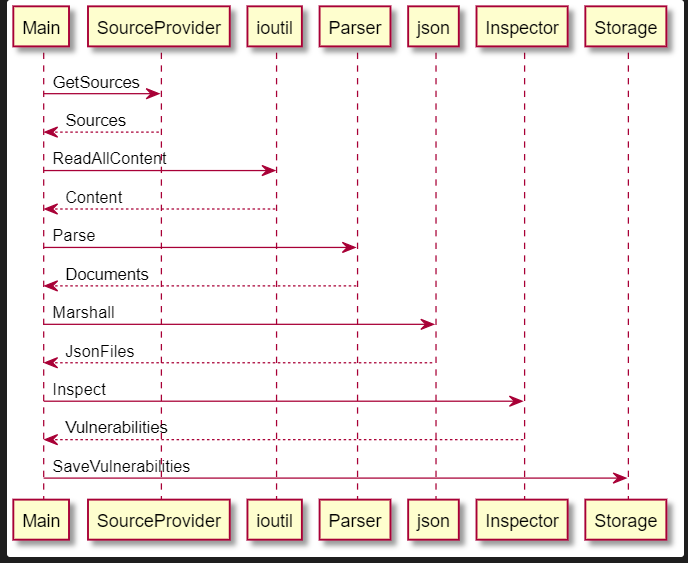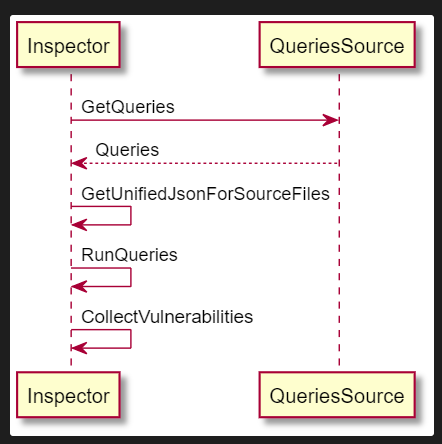Architecture
Overview¶
KICS is 100% open source is written in Golang using Open Policy Agent (OPA).
Golang speed, simplicity and reliability made it the perfect choice for writing KICS, while Rego as a query language, was a native choice to implement security queries.
So far have written 1000+ ready-to-use queries that cover a wide range of vulnerabilities checks for AWS, GCP, Azure and other cloud providers.
High Level Architecture¶
KICS has a pluggable architecture with extensible pipeline of parsing IaC languages, which allows an easy integration of new IaC languages and queries.
At a very high level, KICS is composed of the following main components: a command line interface, parser, queries execution engine, IaC providers, security queries, and results writer.
- Command Line Interface => Provides CLI input to KICS.
- Parser => responsible for parsing input IaC files (terraform and others)
- IaC Providers => Converts IaC language into normalized JSON
- Queries Execution Engine => applies REGO queries against normalized JSON
- Security Queries => pre-built REGO queries for each security and misconfiguration
- Writer => Writes results into JSON format

Execution Flow¶
The sequence diagram below depicts interaction of the main KICS components:


Concurrent Scans¶
KICS creates multiple services, each containing a unique parser. All the services will then concurrently generate a payload and run queries on it according to its containing parser. When a vulnerability is found, it is saved inside the Storage which is shared amongst all the services.
- Paths => create services based on types of IaC files.
- Service => contains a unique parser and shares other resources with other services
- Start Scan => Services will concurrently create payloads based on its parser, inspect for vulnerabilities and save them on the shared storage
- Results => when all services have finished their execution all the results will be gathered from the storage